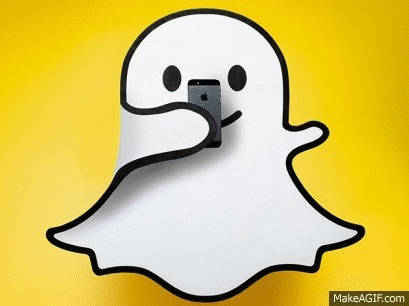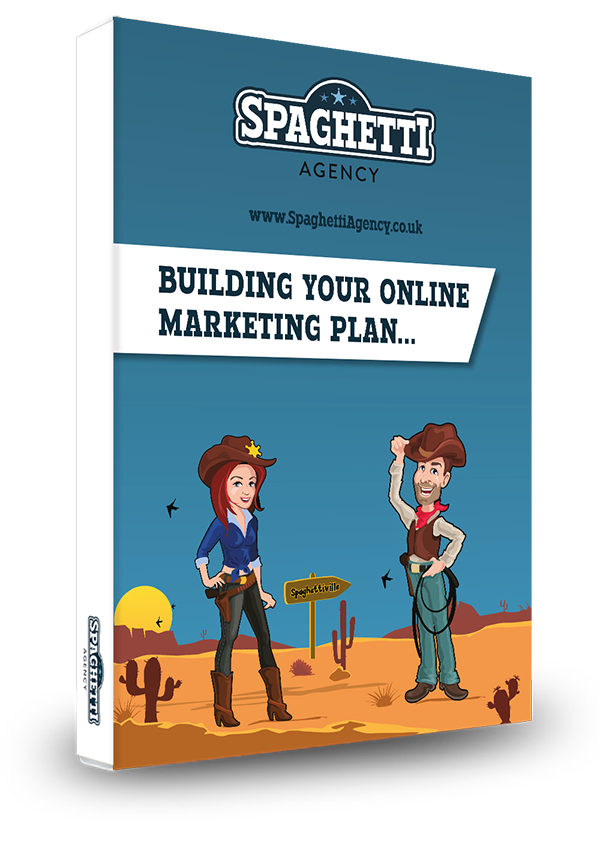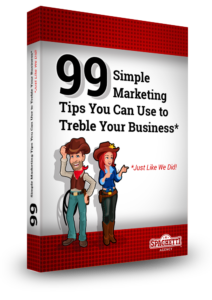Friday Digital Roundup
The Friday Digital Roundup is a witty take on the weird world of the internet. With fun stories from around the globe, it’s the only email newsletter you’ll actually read and enjoy!
We do love writing it, but clearly not as much as people like receiving it - just look at the response we got when a technical hitch meant it wasn’t sent out on time!
@Spaghetti_Jo
Coffee and the FDR is how I start my Friday.
Do not engage until I have devoured both
When it comes to the end of the week, there is no better way to start a Friday than with a run around the internet with Todd and Jo in the FDR. Just don't let them know I do it from the loo!
@Spaghetti_Jo
My inbox is full of rubbish newsletters that Im constantly deleting😬 My VIP inbox is for 1 thing only- THE DIGITAL ROUNDUP🤠I dont read a Newspaper or the news online, I just wait for Fridays, when this lands in my inbox- then I know ‘The weekend has landed’🤗
Get the Friday Digital Roundup and see what everyone’s talking about.
We may look like cowboys, but we’ll never abuse your data! Find out what we’ll do with it here, partner.
Spaghetti Blog
Is Facebook Facing An Inevitable Death? What The Marketers Think
Facebook was the first major social media platform that captured the public’s attention, and still dominates.
Well, there was that MySpace thing, but Facebook has gone the distance, leaving MySpace’s Tom sad and alone.
Created in 2004, Facebook has been around for nearly all of the memorable ‘real’ internet lifetime.
Before Facebook… how did we even share photos of our dinner?
How was the world entertained before the advent of cat videos?
I was really quite late to Facebook. I only joined in 2009, some five and a half years after its launch. I resisted it (and there have been many times I wish I’d continued that) but, just like many of the things happening in the world right now, it became almost impossible to ignore it and not be a part of it.
Facebook became so big, you almost didn’t exist in some social circles if you weren’t on it.
It’s not all bad of course. Facebook forms a large part of the offering here in our marketing training and packages. It’s also given some great connections and it was a truly wonderful thing during the pandemic lockdowns.
But it’s changed a lot.
Change is good, but is it all good for Facebook?
Let’s unpack that a little and answer that bigger question; “is Facebook facing an inevitable death?”

Is Facebook Facing An Inevitable Death? What The Marketers Think
The social network turned internet dominator
Facebook has survived this long for many reasons:
- They’ve always stayed current
- There are still more people on Facebook than any other social platform
- Many people admit to using Facebook more than email
- And they buy up their competition
It’s that last point that’s really helped them.
From WhatsApp to Instagram and lots of IP, tech, software, and even AI – Facebook certainly see off the competition with devastating style.
They did however miss the chance to buy SnapChat from the start, if the story from the video-sharing platform founder is correct. Apparently the founder pitched the idea to Facebook, they didn’t like it, and he set up SnapChat himself!
Facebook were famously turned down, twice, with an offer to buy Snap.co too.
Of course, once Instagram was acquired in 2012, much of SnapChat (famous for introducing the now well-used Stories concept) was then applied to Instagram.
Stories was first, then face filters, and now of course with Instagram Reels, they’re dialling in their target to TikTok.
Are Facebook too big to be beaten now? They seem to see an idea and copy it.
I mean… Instagram stories were and are basically SnapChat, right?
Facebook also copied eBay with Marketplace, which many people I speak to say is better, and they use it way more because it’s more simple.
(Jo and I use Marketplace for all our old baby and toddler stuff to sell the endless items us parents seem to use for a few months then have no need for!)
Local Facebook groups seem better than platforms like Next Door, and of course Facebook live and the Facebook Watch section on the app is squarely aimed at taking over YouTube’s dominance. That said, that seems a long way off and may not be possible.
Facebook even saw off Google+… but that was more likely down to Google+ being a little more complex than was needed in a social platform.
If they carry on with this buying and copying trend, they won’t be going anywhere soon.
Facebook knows so much
Another reason Facebook is so powerful and popular is that they have HUGE amounts of data!
Facebook has the date of birth, photos, locations, check-ins, and even your video and music preferences amongst a tonne of information on you.
Data is gold. It’s actually worth more than gold to many companies. Apple’s push into health data with Apple Health and Apple Watch further strengthens this point.
Data is what Facebook has in droves.
With the introduction of the Facebook pixel in 2015, Facebook tapped into the super scrapping skills of Google and got into the very core of the internet – the websites themselves.
By tracking your movements on certain websites, Facebook is able to obtain detailed information about your search history, buying habits, and interests.
Wanna target 35-year-old men in Oxford who search for golf courses between 7-9 pm, with some paid ads? You got it!
This data drives their algorithm, too. Everything you see is uniquely selected for you. It really is YOUR timeline, and although at times it can be annoying, you can’t argue at the brilliance of its bespoke nature.
Facebook uses your likes and interests to keep you on Facebook. It’s heavily linked to AI and behavioural physiology and it’s damned scary stuff.
We won’t even get into the fact that Facebook own the IP to a microphone listening technology because that’s got nothing to do with the fact that what you talk about in private then appears on your Facebook ads.
Nope. Nothing to link those two things. I did not just do that.
Facebook knows so much about us – because we freely gave it that info – that it’s hard to see why it won’t be around forever.
It’s perfectly moulding to us all the time. It’s giving us exactly what we want, when we want it.
How could it fail?
Facebook has become the mainstream media
I tend to avoid ‘the news’ but that’s almost impossible. Just because I don’t watch the News at Ten or have Sky playing 24/7 on the office screen, doesn’t mean I don’t see the news, does it!?
No, aside from Twitter (the main news-fuelled social media platform) Facebook breaks news faster than many of the big news channels.
Facebook IS the mainstream now.

And, like the BBC and Sky, it’s hard to see that changing or even imagining Facebook not being here one day.
Facebook hosts news about the world, news about your local community, news about your business network, news about your favourite bands, news about your favourite hobby, and news about your family.
That’s way more than any other channel. It’s way more!
One place and it’s all there.
Is it any wonder the UK government spend millions on Facebook ads?
And the Australian government, too?
Or that political parties spend more on ads than door-to-door leaflets?
If you want to reach people, Facebook is likely to be your best bet.
So it’s arguably THE place to be. Surely that means that Facebook’s not going anywhere soon?
Of course, since early 2020, the scene has changed a little…
Facebook is in charge of the conversation
Since the pandemic rolled out across the globe, it’s been very clear how powerful platforms like Facebook have become.
When people all around the world were faced with lockdowns and closed airports, Facebook along with Teams, Zoom, and Hangouts became the people’s place to connect instead of the usual, old normal ways.
But Facebook also became the place to talk about what was and is still going on around the globe, and it’s that use that revealed some power that Facebook has, that we didn’t really ask it to have.
Facebook used to be a place you could tag a mate and poke a family member, but since early 2020 Facebook has also become the place that banned a sitting president and build AI-driven censoring tools to control the conversation on topics like Covid and vaccines.
This ability and action were always there of course, but with such a spotlight on one topic, it’s become clear that it’s not the governments or global leaders that control or monitor freedom (or lack of) speech; it’s the global media and tech companies.
Facebook removed groups, banned people for 24-hours, myself included for a silly tongue-in-cheek joke about Costa coffee curing Covid. It turns out that algorithms don’t have a sense of humour! They took control of its airwaves to ‘stop the spread of misinformation’.
It makes sense on one hand, but then some of what Facebook used to censor is now widely shared by trusted bodies. People have been banned for sharing information directly taken from the UK Government’s website.
I won’t get into that here (I’m already too far down this avenue that I meant to go) but the simple fact is this:
Facebook are controlling one of the biggest conversations in the world.
It’s their platform. It’s their right. But many think they’re now so big, it’s completely out of hand for a platform that many see as a given right to access being able to decide what can and can’t be talked about.
Ok… moving on.
Why did I share that? Because the mass censorship of a few niche topics has pushed a lot of conversations onto other platforms.
Although some of these were blocked by the App Store and Play store during Trump’s demise online, many are still surviving.
And, just like ‘free speech’ platforms created to house videos YouTube didn’t want to, there’s now a lot of new homes on the web for social media content.
Don’t get me wrong, a lot of it was probably best removed, but not all. And I also have no solution to the problem Facebook had and has by the way.
But… it’s happening and this could be an issue long-term for Facebook. People do not like being told what to think and believe. They’re leaving in droves.
Will they annoy too many people? Time will tell…
Facebook is the biggest conversation online, and their approach to that honour and responsibility could be a good or bad thing over the next few years.
The new social media generation effect…
For a long time, people have told me that ‘teenagers’ don’t use Facebook. And that TikTok is for young people.
That’s certainly true. Of course, when I was told this, I ask people I know of that age what they use.
Most of them agree. Facebook is for older people… but the younger people still have it, in most cases. They’re just not as active.
Teenagers are certainly on TikTok and Snapchat, as well as WhatsApp and Instagram (which are Facebook-owned).
One possible future for Facebook is to either buy both Snapchat and TikTok (unlikely) or to silence them by stealing more of their ideas and giving more audience to the younger generations on the older platforms.
It’s already clear that SnapChat is struggling, and has been since 2016 with falling share prices.
Of course, this might not happen, and as many millennials and younger people are more aware (more than most people realise), the charm of a social media app that tracks your every move, likes, and location isn’t actually their ideal choice.
WhatsApp was and still is supposedly fairly private, and Snapchat is well known as a platform where content is seen and then disappears.
It’s a safer bet for those not keen on being seen forever… even though we all know that nothing is really deleted from social media.
(We know that, right?)
So there’s a possibility that the new generation of users are not even on Facebook and that this could mean that tomorrow’s middle aged ‘runners of the economy’ won’t use it… but there’s plenty of time to change that.
It’s also a testament to Facebook’s incredible connection and grasp on the world that teens are often on more mainstream channels like Facebook and Instagram because their parents, grandparents, and other family are there.
Again, it’s like you can’t avoid it, even if you want to.
So… is Facebook due to disappear?

The past few years have changed many people’s views of Facebook. Plenty of people I spoke to found it bad for mental health, as the 24/7 Covid news and views flooded it. Arguing with strangers just isn’t fun for most people. And comparing ourselves and our lives to others can be hugely problematic.
Even I took a 72 hours sabbatical as I needed to unplug from it all.
But it’s so ingrained in our world, our habits, our family, and our data that it’s tough to see how they could fail.
They have everything they need to help them keep building and evolving a platform that we will keep returning to.
I know plenty of people who have never used it personally who don’t understand that. But I know plenty who did think that, joined, and then never looked back.
Facebook might just be too big to die now. It’s more than just Facebook too. It owns a lot of companies, technologies, and software, so even if Facebook.com stops being a social network I suspect it will live on for many more decades.
It’s not the place it used to be, sure. But that’s actually its attraction and I feel the reason for its success and continued presence in our world and mobile phones.
It’s evolved and it continues to evolve. It’s hard to see it falling from where I’m sitting right now.
What do you think?
I’d love to hear from you in the comments. Can Facebook continue to thrive in spite of its critics?
Tags associated with this article
Post a comment
We'd love to know what you think - please leave a comment!








0 comments on this article